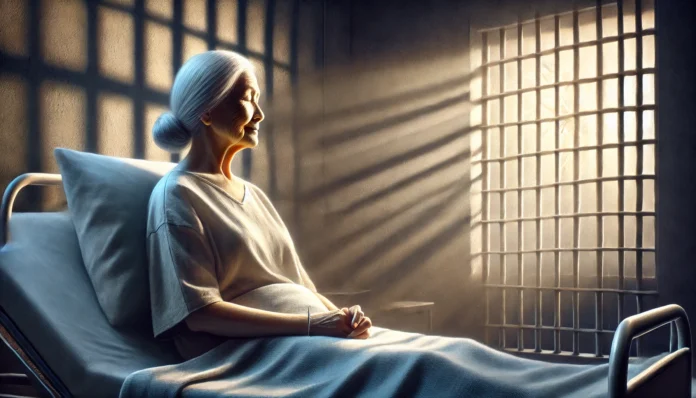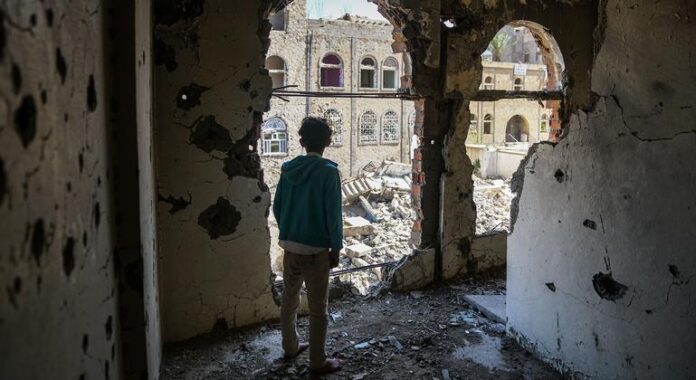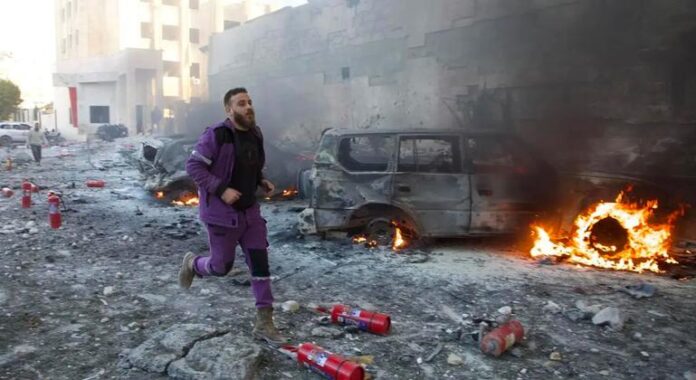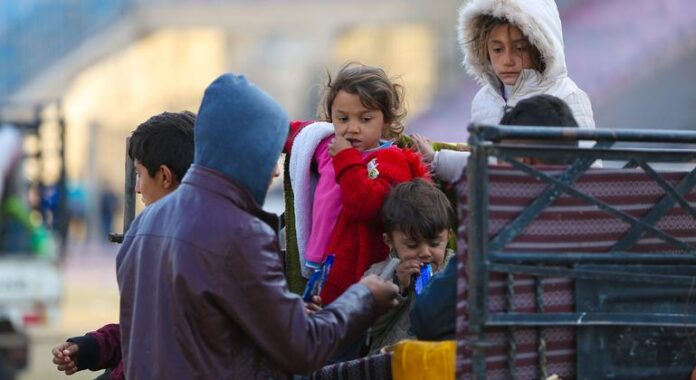Mahvash Sabet is recovering from heart surgery: Iran’s government must let her do so in peace by never returning her to prison.
GENEVA—23 December 2024—Mahvash Sabet, a 71-year-old Iranian Baha’i prisoner of conscience jailed by the Islamic Republic for over 13 years for her beliefs—who has previously been denied proper medical care in prison, despite severe and worsening health issues, and has often been barred from hospital treatment regardless of her life-threatening ailments—has undergone open-heart surgery.
The never-ending story
Once her recovery period is over, however, Ms. Mahvash Sabet will be recalled to prison to serve the rest of her second 10-year jail term.
The Baha’i International Community (BIC) calls for the immediate and unconditional release of Ms. Sabet, the canceling of her prison sentence, and assurances from Iranian authorities that she will never be returned to jail.
Ms. Mahvash Sabet was a member of an informal leadership group of the Baha’i community before being arrested in 2008 and imprisoned for 10 years along with six other colleagues. Baha’is in Iran have faced systematic persecution across all walks of life—a situation which for more than 45 years has been condemned by the United Nations and the international community.
The previous UN Special Rapporteur on human rights in Iran, Javaid Rehman, reported that Baha’is were targeted with “genocidal intent” by the Iranian government. Human Rights Watch called the treatment of the Baha’is in Iran the “crime against humanity of persecution”.
Ms. Mahvash Sabet was arrested for a second time in July 2022—despite suffering from a severe Covid infection and other health issues that needed medical attention. In prison, she earned the respect and affection of her fellow inmates, many of whom saw her as a mother figure, such as the journalist Roxana Saberi who has called for Ms. Sabet’s release on many occasions.
Now, after more than 13 years in prison and repeated and severe physical and emotional maltreatment, as well as interrogations at the hands of the Iranian authorities, Ms. Mahvash Sabet is recovering from heart surgery caused by years of medical neglect and abuse.
Multiple doctors have confirmed, in writing, that her continued detention would lead to a collapse in her health; this is just what has happened.
In November 2022, after her second arrest, doctors confirmed in writing that Ms. Mahvash Sabet suffered from “osteopenia, osteoporosis, and tendinitis,” and that, “owing to the advancing trend of her illness, requiring repeated visits, tolerating prison conditions will be very difficult for her and will lead to a rapid deterioration of her illness”. A second medical report said Ms. Sabet was suffering from “severe allergic asthma and chronic bronchitis” and that she was “not capable of withstanding her sentence”.
The Iranian authorities disregarded these warnings. Ms. Mahvash Sabet now faces a return to Evin Prison after her heart surgery to serve the rest of her sentence—almost eight more years behind bars. The Baha’i International Community insists that her outstanding jail term should be canceled and she must be freed to recuperate in peace.
“Ms. Sabet has faced threatening health conditions for years and has not received the medical attention she has required,” said Simin Fahandej, BIC Representative to the United Nations in Geneva. “Instead of giving her the care she needs, the government sent her to solitary confinement, with long and harsh interrogations. Ms. Sabet should have never been in prison in the first place and once she faced health conditions in prison, should have been released. The Iranian government must now rectify this, releasing her from prison immediately so that she can receive the care she needs with her family.”
Ms. Sabet’s health crisis mirrors similar cases faced by dozens of other Baha’is who are unjustly detained on baseless charges. The BIC has received dozens of reports of Iranian authorities ignoring the health concerns of detained Baha’is—in a clear violation of the right of detainees to medical care.
“The world knows Mahvash Sabet as a fearless champion of human rights, and we are inspired by her fortitude in the face of cruelty and injustice,” Ms. Fahandej said. “But we are heartbroken by the way her life and health have been severely impacted and by the Iranian government’s cruel persecution of her, as well as her fellow Baha’is, and the whole Baha’i community. We call for an end to the cruelty and discrimination that would allow a 71-year-old, who already spent 13 years in prison to continue to be persecuted with such grave injustice.”
The United States Commission on International Religious Freedom also said, on December 13, that it was “deeply concerned by the hospitalization of Baha’i leader Mahvash Sabet,” adding that Iranian authorities had “repeatedly tortured” her in prison.
In April 2023, after her second imprisonment, reports emerged that Ms. Mahvash Sabet’s knees had been broken by security officials during an Evin Prison interrogation. Ms. Sabet was forced to recover from this grave injury within the prison walls.
“Imagine entering a time of life when most people spend more time with their families, but instead staring at the walls of a cell, while your heart and body crumble and your heart fails. If you can imagine this then you can understand a piece of the injustice Mahvash continues to endure,” Ms. Fahandej added.
“The Iranian government now has a chance to take a positive step by confirming Mahvash Sabet will never again step inside prison,” Ms. Fahandej said. “Mahvash deserves to recover from heart surgery with her family—and neither she nor any Baha’i or other prisoners of conscience should suffer through a single minute more of brutality for their beliefs.”
More on Mahvash Sabet
● Dr. Shirin Ebadi, a Nobel Peace Prize laureate and defense lawyer for Mahvash Sabet and the other Baha’i leaders during their 2008 trial, said there was “not a shred of evidence” to prove any of the allegations regarding national security, “spreading corruption on earth,” and other charges, put forward by the Iranian government.
● In 2017, Ms. Mahvash Sabet was named by International PEN as its “International Writer of Courage” for a series of poems she had written inside Evin Prison. Before her first imprisonment, she worked as an educator for the Baha’i Institute for Higher Education, which offers university-level instruction to young Iranian Baha’is, who are barred from tertiary institutions because of their faith.
● One of Ms. Mahvash Sabet’s fellow inmates in Evin Prison, the Nobel laureate Narges Mohammadi, has on several occasions spoken out in defense of Ms. Sabet and other Baha’i prisoners.
● In one statement, published in January 2023 from inside Evin Prison, Ms. Mohammadi remembered the moment she saw Ms. Sabet returned to Evin Prison, saying “Mahvash stood there, coughing repeatedly, pale, and still wearing the summer clothes she had on during her arrest on 31 July,” noting her lack of warm clothing during the winter months, in a clear confirmation of the neglect shown by prison authorities for Ms. Sabet’s health.
● The US-based Iranian women’s rights activist, Masih Alinejad, also published in December 2023 a video statement in which she read from a letter by Ms. Sabet and praised her courage in the face of persecution and injustice.
More on the persecution of the Baha’is in Iran
Recent months have seen a rise in international attention and concern over the human rights of Baha’is in Iran and, in particular, over the situation of Iranian Baha’i women.
● The latest development in Ms. Sabet’s health situation comes just weeks after 18 United Nations experts criticized the Iranian government for a rise in attacks on Baha’i women. Iranian Baha’i women face intersectional persecution as women and as Baha’is.
● Earlier this week, meanwhile, the United Nations General Assembly passed its most recent resolution criticizing the Islamic Republic for its human rights violations and rebuking Iran’s government for subjecting Baha’is to “a continued increase and the cumulative impacts of long-standing persecution, including attacks, harassment, and targeting, who face increasing restrictions and systemic persecution by the Government of the Islamic Republic of Iran on account of their faith and have been reportedly subjected to mass arrests and lengthy prison sentences, as well as the arrest of prominent members and increased confiscation and destruction of property”.
● A recent launch of a new report, Outsiders: Multifaceted Violence Against Baha’is in the Islamic Republic of Iran by the Abdorrahman Boroumand Center for Human Rights in Iran, UN Special Rapporteurs including Professor Mai Sato, the new Special Rapporteur on human rights in Iran, and Professor Nazila Ghanea, Special Rapporteur on freedom of religion or belief, spoke about Iran’s systematic repression of the Baha’i community, particularly targeting Baha’i women.
● A grim example of recent persecution came in October when 10 Baha’i women in Isfahan were sentenced to a combined total of 90 years in prison. The women were convicted of “spreading propaganda” and acting against the Iranian government after organizing educational and cultural activities—such as language, art, and yoga classes, including for children—which Iranian authorities deemed “deviant educational activities”.
● Recent international scrutiny also includes a letter signed by 18 UN experts in October, rebuking Iran for targeting Baha’i women through home raids, travel bans, and prolonged prison sentences. The experts, including UN Special Rapporteurs on violence against women and girls, freedom of religion or belief, and freedom of opinion and expression, called the government’s actions “a continuous pattern of targeted discrimination.” And earlier this year a report by Human Rights Watch, titled The Boot on My Neck, found Iran’s 45-year systemic repression of Baha’is to be the “crime against humanity of persecution”.














